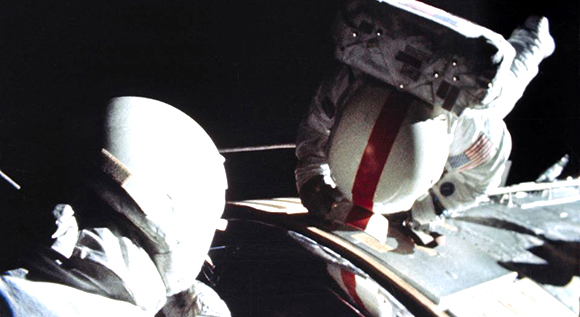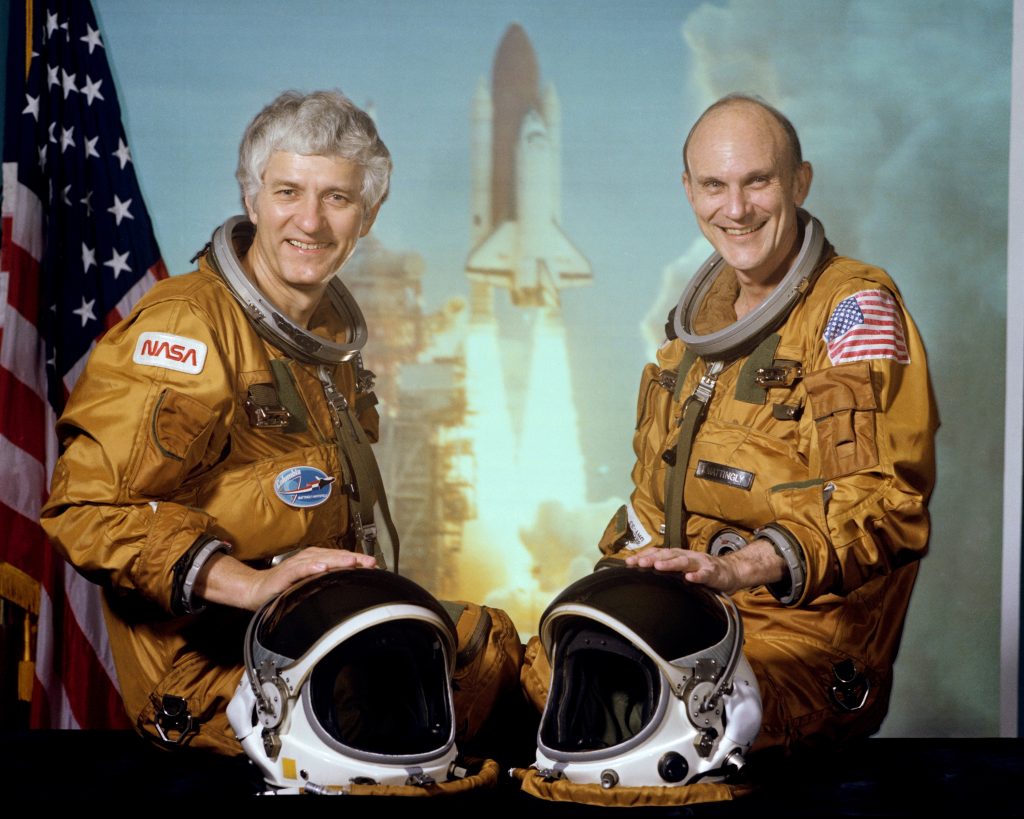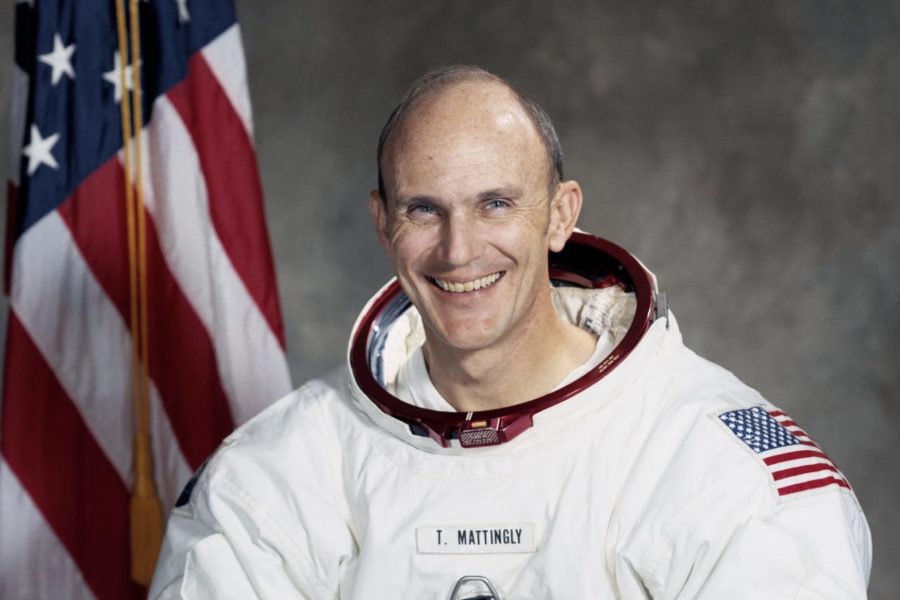Thomas Kenneth Mattingly, II, the command module pilot of Apollo 16, commander of two Space Shuttle missions, and an aerospace industry executive died in Arlington, Va. on Oct. 31 at 87. He was one of only two astronauts to fly both an Apollo and Shuttle in space.
Mattingly was commissioned in the Navy in 1958 and served as a pilot aboard aircraft carriers from 1960-1965. After completing the Air Force Aerospace Research Test Pilot School, he was one of 19 pilots selected in 1966 to be a NASA astronaut.
During his first five years with NASA, Mattingly supported the Apollo 8 and 11 missions and was the astronaut liaison to the industry/government team developing the Apollo space suit and backpack.
He was selected for and trained as command module pilot of Apollo 13, but due to exposure to Rubella, he was removed from the mission only three days before launch, replaced by backup astronaut Jack Swigert.
Enroute to the moon, Apollo 13 suffered an oxygen tank explosion in its service module, which decimated the command and service module’s power supply. Mattingly helped develop power transfer workarounds between the command and lunar modules that allowed the latter to be used as a lifeboat and revive the command module’s systems in time for re-entry.
Despite his exposure, Mattingly did not become sick with Rubella.
Mattingly’s contributions to the ill-fated mission were recounted in the 1995 film, “Apollo 13,” which was nominated for an Academy Award as Best Picture, and in which he was played by actor Gary Sinise.
In a Nov. 1 statement, NASA Administrator Bill Nelson said Mattingly “stayed behind and provided key real-time decisions to successfully bring home the wounded spacecraft and the crew of Apollo 13.”
Back in the Apollo flight rotation, Mattingly was named command module pilot for Apollo 16, the penultimate moon mission, which sent astronauts John Young and Charles Duke to the lunar surface for three days in April 1972. During that time, Mattingly, alone in the command module, conducted 36 experiments and mapped large swaths of the lunar surface.
On the return flight to Earth, Mattingly conducted a 73-minute extra-vehicular activity (EVA) to retrieve film canisters from the craft’s service module. To date, it is one of only three deep-space spacewalks conducted beyond geostationary orbit.

After the Apollo program, Mattingly became a key figure in the development, test, and operation of the Space Shuttle. From 1973 to 1978, he was head of the astronaut office to support the Space Transportation System (STS), at which point he became technical assistant for flight test of the program.
From December 1979 to April 1981, he headed the astronaut office ascent/entry group. Mattingly was the backup commander for the STS-2 and STS-3 missions, the second and third orbital test flights of the shuttle Columbia.
He commanded STS-4 in July 1982. The Columbia mission was the last of four test flights of the shuttle system, which completed 112 orbits of the Earth. It landed on July 4 at Edwards Air Force Base, Calif. where President Ronald Reagan greeted the returning Mattingly and pilot Henry Hartsfield. From June 1983 through May 1984, Mattingly headed the Astronaut Office DOD Support Group

In January, 1985, Mattingly commanded STS-51C with a crew of five, which was the first dedicated military mission of the shuttle aboard Discovery. The mission launched a secret Department of Defense payload using the Inertial Upper Stage booster from the payload bay. The mission remains largely classified.
During his years as an astronaut, Mattingly logged over 504 hours in space. He retired from NASA in 1985, but returned to the Navy, retiring from that service as a two-star Admiral the following year.
Working in the public sector, Mattingly was director of Grumman’s Space Station Support Division, headed the Atlas booster program for General Dynamics, and was vice-president at Lockheed, where he ran the X-33 space shuttle successor program later canceled by the Pentagon and NASA in 2001, with 85 percent of the initial flight vehicle complete.
“TK Mattingly was key to the success of our Apollo Program, and his shining personality will ensure he is remembered throughout history,” Nelson said.
Mattingly held an aeronautical engineering degree from Auburn University, and received numerous aerospace awards and honors, including the Department of Defense and NASA Distinguished Service Medals, the Society of Experimental Test Pilots Ivan Kincheloe Award, the Navy Distinguished Service Medal, and the Johnson Space Center Certificate of Commendation and Group Achievement Award. He had accumulated over 7,200 flying hours, including more than 5,000 in jets.
